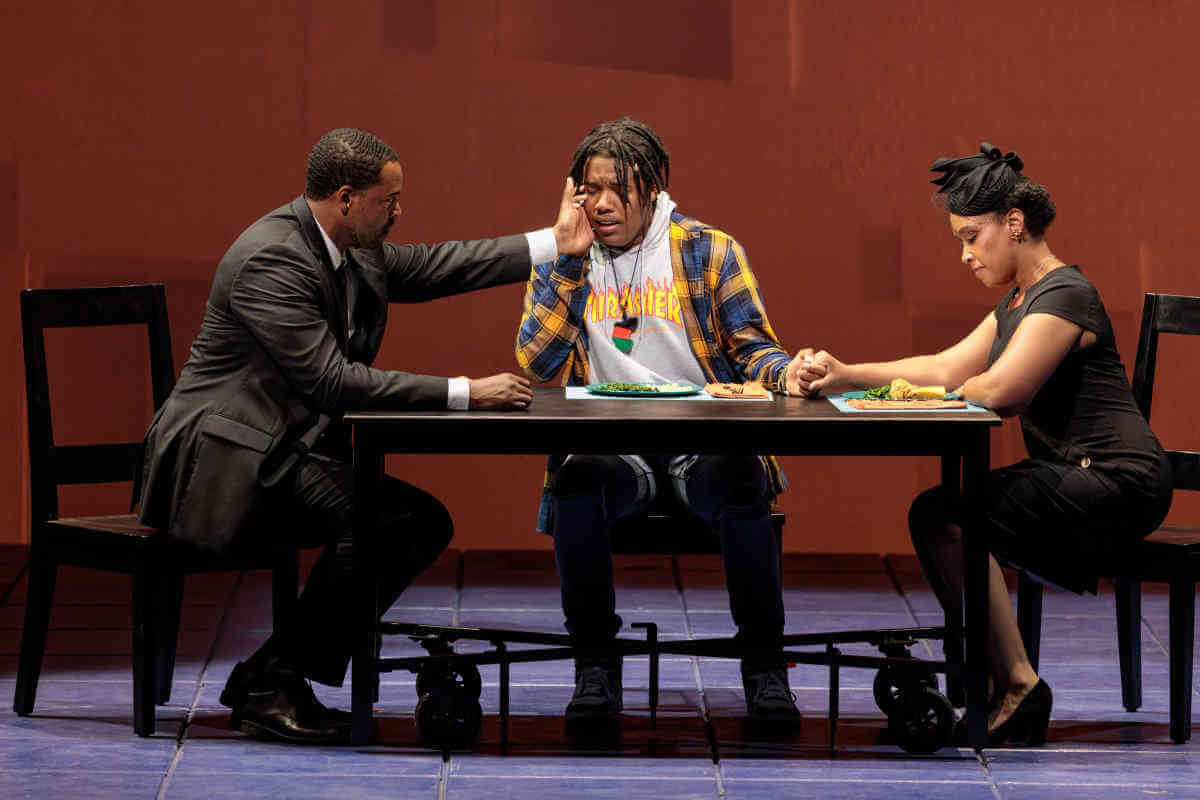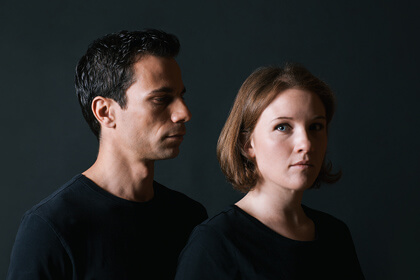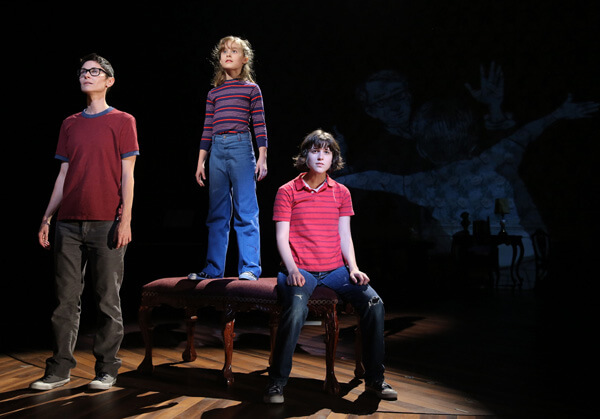The Glimmerglass Festival — Cooperstown’s lakeside company that started with “La bohème” at the local high school in 1975 — made rapid strides artistically, especially after the beautiful, state-of-the-art lakeside Alice Busch Theater opened in 1987. An all-English policy was dropped and repertory grew more ambitious, encompassing world and national premières as well as explorations of early and recondite repertory. Since 1988, the company’s Young Artist program has produced many distinguished alumni including Karina Gauvin, Christine Goerke, John Osborn, Brenda Rae, and Anthony Roth Costanzo.
Francesca Zambello, the busy out lesbian stage director who’s run Washington National Opera since 2012, assumed the reins as Glimmerglass’ artistic and general director in 2010. She has to raise donations tirelessly, but has stabilized the company after two financially heedless regimes and instituted one remunerative and (usually) worthwhile innovation: she programs a classic musical comedy — mercifully without distorting amplification — every season. This year, she directed 1927’s “Show Boat,” a landmark Jerome Kern score with some actual socio-political content. Next year promises “The Sound of Music” with Isabel Leonard and longtime Glimmerglass tenor star William Burden. Zambello has also pioneered cooperation with local schools and brought piano-accompanied performances including “Macbeth” (starring Eric Owens) and “Bohème” to inmates at Attica State Prison. Multiracial casting and staffing has been welcomely standard under her régime.
The big news this season was July 14’s world première of “Blue,” dealing with the all-too-timely subject of police violence against African-American men. In veteran director Tazewell Thompson’s libretto, the young activist victim’s father is ironically himself a policeman, complicating the family situation and the narrative. Jeanine Tesori, an acclaimed composer of Broadway musicals including the admirable “Caroline, or Change” with Tony Kushner and the superb collaboration with Alison Bechdel “Fun Home,” supplied Glimmerglass with her first opera, 2011’s chamber piece “A Blizzard on Marblehead Neck.” Her atmospheric score for “Blue,” successful though not especially innovative, respectfully incorporates some jazz, gospel, and hip-hop inflections; the choral scenes show especially fine vocal writing. Thompson’s libretto — more steeped in Catholicism than the typical Baptist-inflected African-American “family play” — offers clarity and an ingenious construction (we see the hopeful middle scene last, after The Son’s wrenching funeral). It does indulge at times in the current American libretto’s besetting sin: introducing McNally/ Wasserstein boulevard comedy-style “relatable” references to brand names, sports, and pop culture to ‘soften’ the impact of the serious themes being presented. But it’s a moving and highly honorable work, and certainly Thompson and veteran conductor John DeMain obtained excellent, affecting results from a youngish cast.
Solid, sonorous bass Kenneth Kellogg capably shouldered the lion’s share of singing and acting as the conflicted Father. Briana Hunter’s vibrant-voiced Mother generated endless sympathy. Still a student at Curtis Institute, Aaron Crouch acted the Son very convincingly; his trenchant tenor sounds more baritonal by the year. Lively, clear-toned high soprano Ariana Wehr proved the evening’s vocal revelation in three ensemble parts — but the whole cast delivered conviction. Veteran baritone Gordon Hawkins — Zambello’s fine longtime Alberich — brought mature but still imposing sound and presence to the Reverend — with whom, somewhat unexpectedly, the Father discusses the tragedy more than with his wife. Robert Wierzel brought his usual lighting wizardry to bear. “Blue” aroused a strong emotional audience reaction. It plays through August 22 and will appear in Washington March 15-28, with Kellogg still anchoring the cast.
Though she’s directed some highly accomplished works, involving huge stagings internationally (“War and Peace” at the Bastille, Wagner’s “Ring” cycle for Washington and San Francisco Operas), Zambello’s productions sometimes take on a circusy or holiday pageant-like aspect. But her handsome, organically blocked and motivated “Traviata” (originated in DC last fall and on view upstate through August 24) proved highly enjoyable, a tonic after the disappetizing Disneyish spectacle Michael Mayer unveiled at the Met in December. The opera began and ended in a hospital ward, and the transformations of Peter J. Davison’s handsome set flowed smoothly.
Amanda Woodbury, an attractive Kentucky-born lyric-coloratura who has alternated with Diana Damrau as a Met Leïla and Juliette, made her affectingly acted Violetta’s technical challenges sound easy, though weightier phrases like “Amami, Alfredo” took some effort. Looking like portraits of Marie Duplessis, the raven-haired original inspiration for Dumas’ fictional courtesan, she’s ready to shoulder this iconic role in important regional houses; greater textual and timbral variety will come. A shy, youthful Alfredo, Kang Wang sang solidly in a still-developing tenor, best in the lyrical duets. Adrian Timpau, spared Germont’s sub-standard cabaletta (company music director Joseph Colaneri led a warm, idiomatic reading with traditional cuts and cadenzas) contributed dignity and bel canto phrasing. Among the Young Artists in comprimario roles, Lindsay Metzger and Kameron Lopreore’s live-wire Flora and Gastone showed distinctive timbres and stage personalities. Even the dancing at Flora’s party was apt and enjoyable: a major rarity in this piece.
The other 2019 mainstage show was John Corigliano’s nostalgie-pour-l’ancien-regime pastiche “The Ghosts of Versailles” (Met, 1991), reportedly very well staged. Next season brings “Don Giovanni” and — more interestingly — Handel’s “Rinaldo”: a welcome return of the baroque repertory that helped put Glimmerglass on the international map with appearances by David Daniels, Goerke, Drew Minter, and Lisa Saffer in Monteverdi, Cavalli, and Handel — and (following 2008’s “Das Liebesverbot”) Richard Wagner’s early “Die Feen,” not heard in America since 1982.
David Shengold (shengold@yahoo.com) writes about opera for many venues.



































